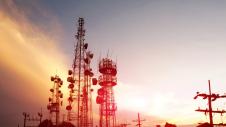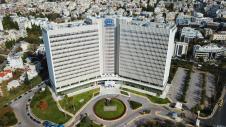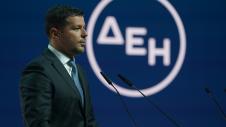PPC is expected to make a big leap in the future to cover the huge distance that separates it from other European energy companies, as shown in a ... crash test with Portugal’s EDP, which has taken huge steps in renewable energy production and is much more efficient, in terms of profitability, while its market value is nine times higher than PPC’s.
The management of PPC, under George Stassis, is in the last steps a 1.35 billion euro share capital hike, which has been oversubscribed from local and international investors.
The large capital increase by Greek standards, will be, according to what PPC has announced, used to finance an investment program totaling 9.3 billion euros, which promises to shareholders a shift from PPC’s lignite days to green and much more profitable renewable power.
At the same time, through this route, PPC is called upon to modernize its structures and operation, which are far removed from the European standards of respective companies.
How difficult it is to advance on these fronts is shown by the comparison made by Business Daily between PPC and the Portuguese energy company, EDP. These are two companies that can be considered comparable, given that they operate in two national markets with similar population and economies, which suffered during the past decades from severe financial crises and had to resort to international borrowing to avoid collapse.
Two different worlds
The price of PPC’s strategic short-sightedness, along with trade unionists that believed that lignite will be used until it runs out, becomes apparent from a comparison of the current situation of PPC and EDP.
The comparison highlights the huge backwardness of PPC:
- It is characteristic that in 2020 EDP had a slightly higher turnover than PPC (5.092 billion against 4.694 billion euros), but its operating profit was 4.8 times higher (3.95 billion against 821 million euros) . PPC's operating costs, which reflect its extremely low efficiency, were about 2.5 times higher.
- On profitability (before taxes) the comparison is overwhelmingly against PPC, which showed small profits (67 million euros) after several loss-making years, while the Portuguese company had a profit in 2020 of 1.16 billion euros, about 23 times higher than PPC’s.
- Another characteristic element, which highlights the difference in efficiency between the two companies, is located in staff number. EDP had 12,180 employees in its group in 2020, which is much less than PPC, which had 13,832 employees. However, it should be noted that with 1,652 fewer employees, EDP covered all of its operations in Portugal and 21 other countries, including large markets such as Brazil and Spain. In Portugal, EDP employed just 5,800 people, meaning that PPC has more than double the number of employees.
- As a result, investors place a higher value on EDP than PPC. The market value of the Portuguese company is close to 20 billion euros and is almost 9 times higher than that of PPC.
What gives EDP the big edge over PPC is its energy production mix. EDP has slashed its dependence on fossil fuels, which is very costly due to the huge rise in European pollution rights.
It is noteworthy that the Portuguese company already bases its production by 74% on renewable energy sources and recently announced that it aims to reach 100% in 2030. PPC, on the other hand, remains still trapped in fossil fuels. It is replacing lignite with natural gas, but derives only 29% of its production from Renewable Energy Sources (2020 data).








